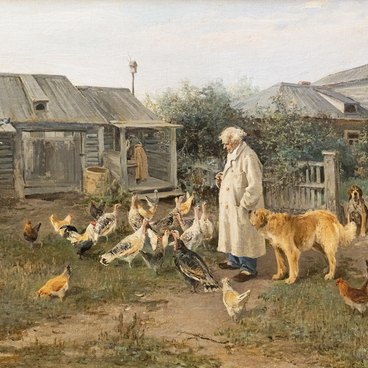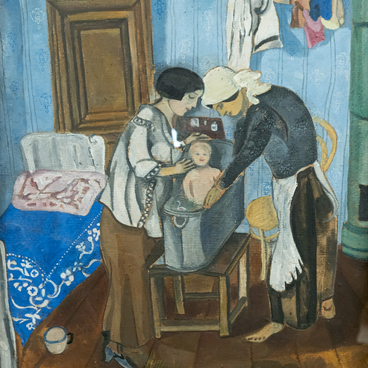Boris Mikhailovich Nemensky is a painter, graphic artist, teacher, professor, People’s Artist of the RSFSR, and Academician of the Russian Academy of Arts.
He was born on December 24, 1922, in Moscow. After school, he entered the Moscow Art College in Memory of 1905.
In 1942, after graduating from the Saratov Art College, he was drafted into the army and allocated to the Studio of Military Artists named after the battle artist Mitrofan Borisovich Grekov.
Boris Nemensky went through the entire Great Patriotic War; he participated in the battles on the Oder River and in the Battle of Berlin.
Between 1957 and 1960, he taught at the Moscow City Pedagogical Institute named after the historian Vladimir Petrovich Potemkin, then at the Moscow State Pedagogical University. Since 1966, he has been a professor at the Art Department of the All-Russian State University of Cinematography named after the Russian film director Sergei Apollinarievich Gerasimov (VGIK).
The war became the main theme for the artist, and all his subsequent works are dedicated to it.
The collection of the Pskov Museum presents Nemensky’s painting “Fathers” created in 1971. This is one of four variants of the painter’s one idea, which received various pictorial and sculptural renderings between 1967 and 1971. The work entered the museum in 1973 from Nemensky’s studio.
The plot is based on a real story, witnessed by the painter in 1943 near the town of Velikiye Luki.
After all the fighting, the town and its surroundings were completely destroyed. Among the ruins and ashes, the soldiers found a little girl, Anya; she was the only survivor of the entire village and hardly spoke. Back in 1943, Boris Nemensky made a charcoal sketch called “Orphan from Velikiye Luki” and would return to this topic many years later.
The painting has no odd elements. The elongated
horizontal format shows a panorama of the area that was destroyed by the
shells. The earth is scorched everywhere, there are only coals and stumps left
from the trees. The soldiers have gathered around the girl. They hand her bread
and pieces of refined sugar — all they could find in their shoulder bags.


